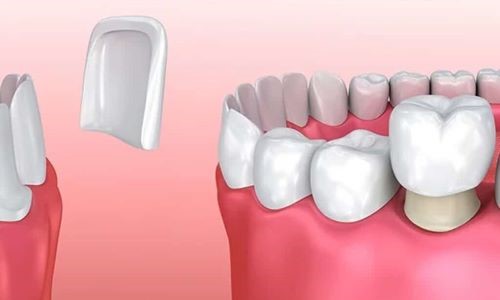When it comes to enhancing your smile or restoring damaged teeth, dental veneers and dental crowns are two popular options. Both treatments offer transformative results, but they serve different purposes and have distinct characteristics.
Purpose and Functionality:
Dental veneers:
Dental veneers are thin shells of porcelain or composite resin that are bonded to the front surface of teeth. They are primarily used to improve the appearance of teeth by covering up stains, chips, gaps, or minor misalignments. Veneers create a natural-looking, uniform smile without extensive tooth preparation.Dental crowns:
Dental crowns, also known as caps, encase the entire visible portion of a tooth above the gumline. They are used to restore and strengthen teeth that are significantly damaged or weakened due to decay, fractures, large fillings, or root canal therapy. Crowns provide structural support and protection for compromised teeth, restoring their function and appearance.
Tooth Preparation:
Dental veneers:
The preparation for dental veneers involves minimal alteration of the tooth structure. A thin layer of enamel is typically removed from the front surface of the teeth to accommodate the veneers. This process is conservative compared to crowns and preserves more of the natural tooth structure.Dental crowns:
To place a dental crown, a more extensive amount of tooth structure needs to be removed to make room for the crown’s thickness. The tooth is shaped into an abutment to allow the crown to fit securely over it. This process is irreversible and requires more tooth reduction than veneers.
Material and Appearance:
Dental veneers:
Veneers are commonly made from porcelain or composite resin materials. Porcelain veneers are highly durable, stain-resistant, and closely mimic the natural appearance of teeth. They are custom-designed to match the shape, size, and color of your existing teeth, providing a seamless blend with your smile.Dental crowns:
Dental crowns can be fabricated from various materials, including porcelain-fused-to-metal, all-ceramic, or metal alloys. Porcelain crowns offer excellent aesthetics and are suitable for front teeth, while metal crowns are more durable and often used for molars. Crowns are customized to match the color and shape of your natural teeth for a lifelike result.
Strength and Durability:
Dental veneers:
While dental veneers are resilient and can withstand normal biting and chewing forces, they are not as strong as crowns. Veneers are more prone to chipping or fracturing if subjected to excessive force or trauma. With proper care and maintenance, veneers can last for 10-15 years or longer.Dental crowns:
Dental crowns provide superior strength and durability, making them suitable for restoring heavily damaged or weakened teeth. Crowns can withstand greater biting pressure and are less susceptible to damage compared to veneers. With good oral hygiene habits and regular dental check-ups, crowns can last for 10-20 years or more.
Both dental veneers and crowns offer effective solutions for enhancing the appearance and functionality of teeth. The choice between veneers and crowns depends on factors such as the extent of tooth damage, aesthetic goals, and budget.













